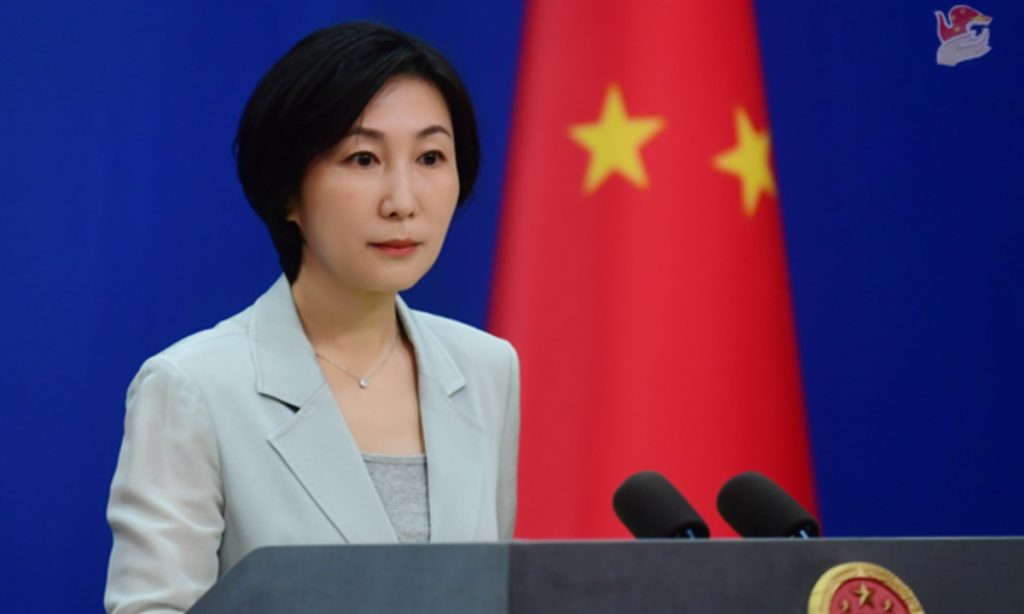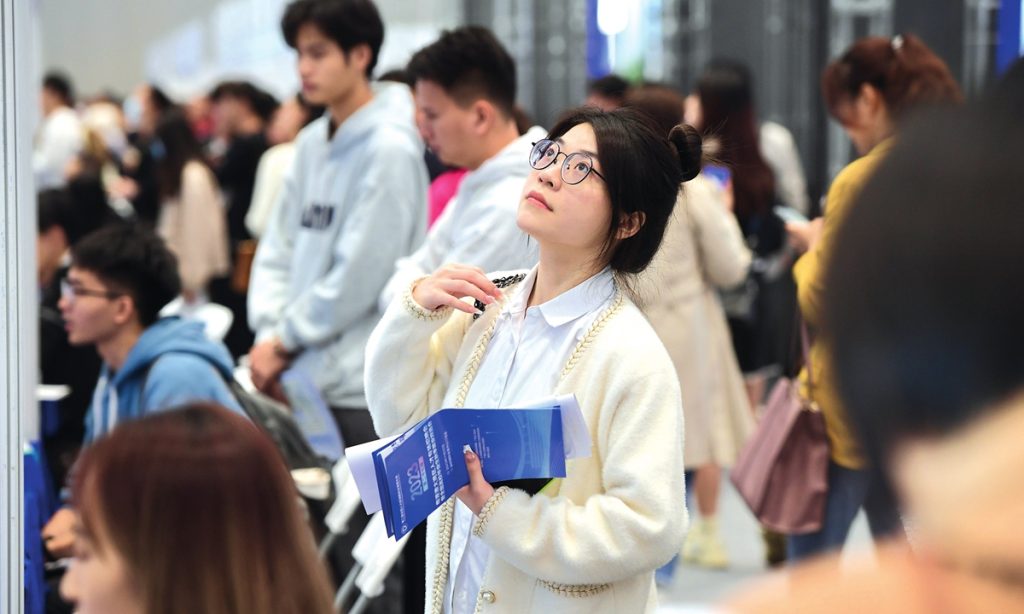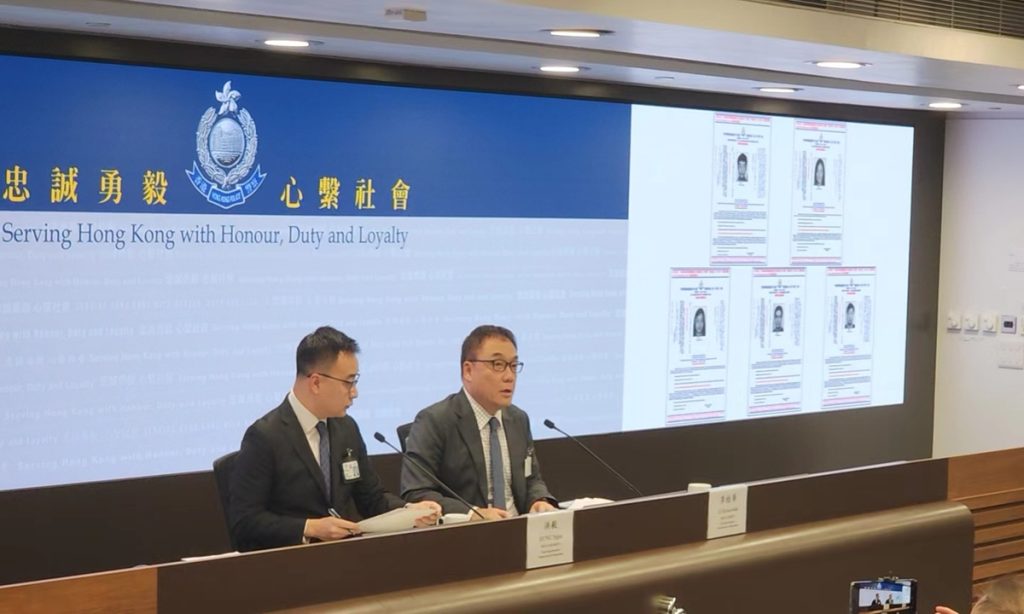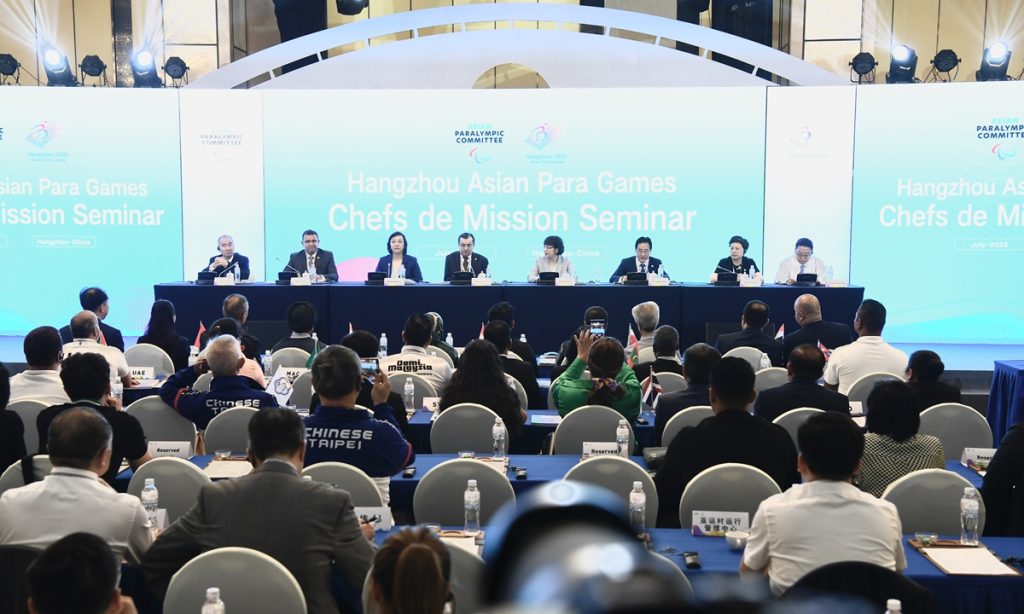China, Maldives elevate ties, underscoring mutual support
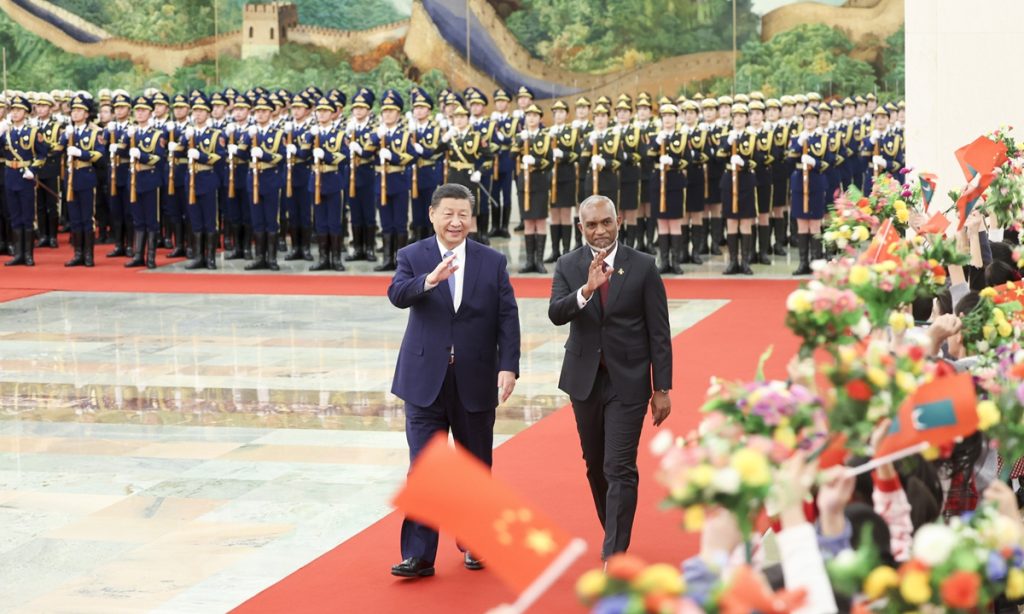
Chinese President Xi Jinping held talks with President of the Republic of Maldives Mohamed Muizzu in Beijing on Wednesday. Chinese experts said that the elevation of China-Maldives relations will bring more development opportunities to the peoples of two countries as well as to the Indian Ocean region, which is significant to China-proposed Belt and Road Initiative (BRI) and the economic and energy security of China.
According to the Xinhua News Agency, Xi welcomed Muizzi at a ceremony at the Great Hall of the People in Beijing, before holding a bilateral meeting with Muizzu, who is paying a five-day state visit to China from January 8-12. The two heads of state announced the elevation of bilateral ties to a comprehensive strategic cooperative partnership during the talks.
China stands ready to exchange governance experience with the Maldives, strengthen the synergy of development strategies, advance high-quality Belt and Road cooperation, and set a new benchmark for the China-Maldives friendship, Xi said.
He called on the two sides to strengthen cooperation in such areas as the economy, trade and investment, agricultural parks, and the blue, green and digital economies. He also called for expanded cooperation on marine ecological and environmental protection, as well as strengthened people-to-people exchanges. He said China will support more Maldivian students to study in China and promote more direct flights between the two countries.
Xi noted that the two sides should strengthen multilateral communication and coordination to safeguard genuine multilateralism and the common interests of developing countries, and build a community with a shared future for humanity to make the world more peaceful, secure and prosperous.
Muizzu said he was honored to pay his first state visit to China with a number of important cabinet ministers and become the first foreign head of state that China has hosted this year, fully demonstrating the great importance both sides attach to the development of bilateral relations.
Noting that this year marks the 10th anniversary of President Xi's historic state visit to the Maldives, Muizzu said that China has provided a significant amount of valuable assistance to his country's economic and social development. He said the Maldivian people have benefited greatly from the BRI, citing the Maldives-China Friendship Bridge as a symbol of the bond between the two peoples.
After their talks, the two heads of state witnessed the signature of an action plan to establish the China-Maldives comprehensive strategic cooperative partnership, as well as cooperation documents on the construction of the Belt and Road, disaster management, the economy and technology, infrastructure, people's livelihoods, green development, and the blue and digital economies.
Strategic significance
Zhao Gancheng, a research fellow at the Shanghai Institute for International Studies, told the Global Times on Wednesday that although Maldives is a small country in terms of land area and population, in terms of geopolitics, it has very high strategic significance.
"The Indian Ocean is far from us, but it's extremely important to the economic and energy security of our country, as well as the BRI, so China needs to try its best to make friends in the region," Zhao noted.
Xi said at the meeting with Muizzu that China respects and supports the Maldives in exploring a development path suited to its national conditions, and supports the Maldives firmly in safeguarding its national sovereignty, independence, territorial integrity and national dignity.
Muizzu said the Maldives pursues the one-China policy firmly. Firm mutual support in safeguarding national sovereignty, independence and territorial integrity is a solid foundation for the sustained and sound development of Maldives-China relations.
The Maldives supports the Global Development Initiative, the Global Security Initiative and the Global Civilization Initiative, all of which were put forward by President Xi, and is willing to communicate and cooperate closely with China on international and regional affairs, Muizzu noted.
Hu Zhiyong, a research fellow at the Institute of International Relations at the Shanghai Academy of Social Sciences, told the Global Times on Wednesday that Muizzu's visit to China shows that Maldives sincerely wants to develop ties with China and strengthen existing cooperation.
"Muizzu's pledge to the Maldivian people that there will be 'no foreign military presence,' makes India angry, so the newly elected president will surely hope China can help his country deal with the pressure from New Delhi," Hu said.
China-Maldives relations do not target any third party, but due to India's aggressive stance against its neighbor, countries in the region will definitely want to diversify their ties to preserve their national dignity and sovereignty via cooperation with other major powers like China, said Chinese experts.
This is why the normal development of ties between China and Maldives is making some India elites and decision-makers anxious, although it is unnecessary and exposes New Delhi's intention to suppress its neighbors, said analysts.
Cooperation between China and Maldives, as well as other countries in the Indian Ocean will face challenges and uncertainties from India's interruption, so China and Maldives need to work together to strengthen their security cooperation to ensure the implementation and operation of other projects, and to jointly oppose foreign intervention, Hu noted.
According to Indian media, some Indian internet users are launching a boycott campaign against Maldives amid tensions between Maldives and India, and reports claim that Muizzu is trying to attract more Chinese tourists to the Maldives to offset the loss caused by India's boycott.
Qian Feng, director of the research department at the National Strategy Institute at Tsinghua University, told the Global Times on Wednesday that Chinese tourists will return to Maldives step by step in the post-pandemic era, because it is a well-known paradise for tourism among Chinese public, so the return of Chinese tourists will not be driven by so-called political reasons or any diplomatic activity.
China had remained as the largest source of tourist arrivals in the Maldives for years before the outbreak of the COVID-19 pandemic. In 2019, nearly 300,000 Chinese tourists visited the Maldives, accounting for around 17 percent of total tourist arrivals that year, Xinhua reported.
It would be short-sighted and narrow-minded to understand the development of China-Maldives ties only based on tourism. Hu said that apart from the tourist industry, both sides can explore cooperation in other fields related to tourism, such as protection of coastal and marine ecosystems, and the development of the maritime economy, as well as public health cooperation like promoting traditional Chinese medicine to help local people to get better healthcare.
